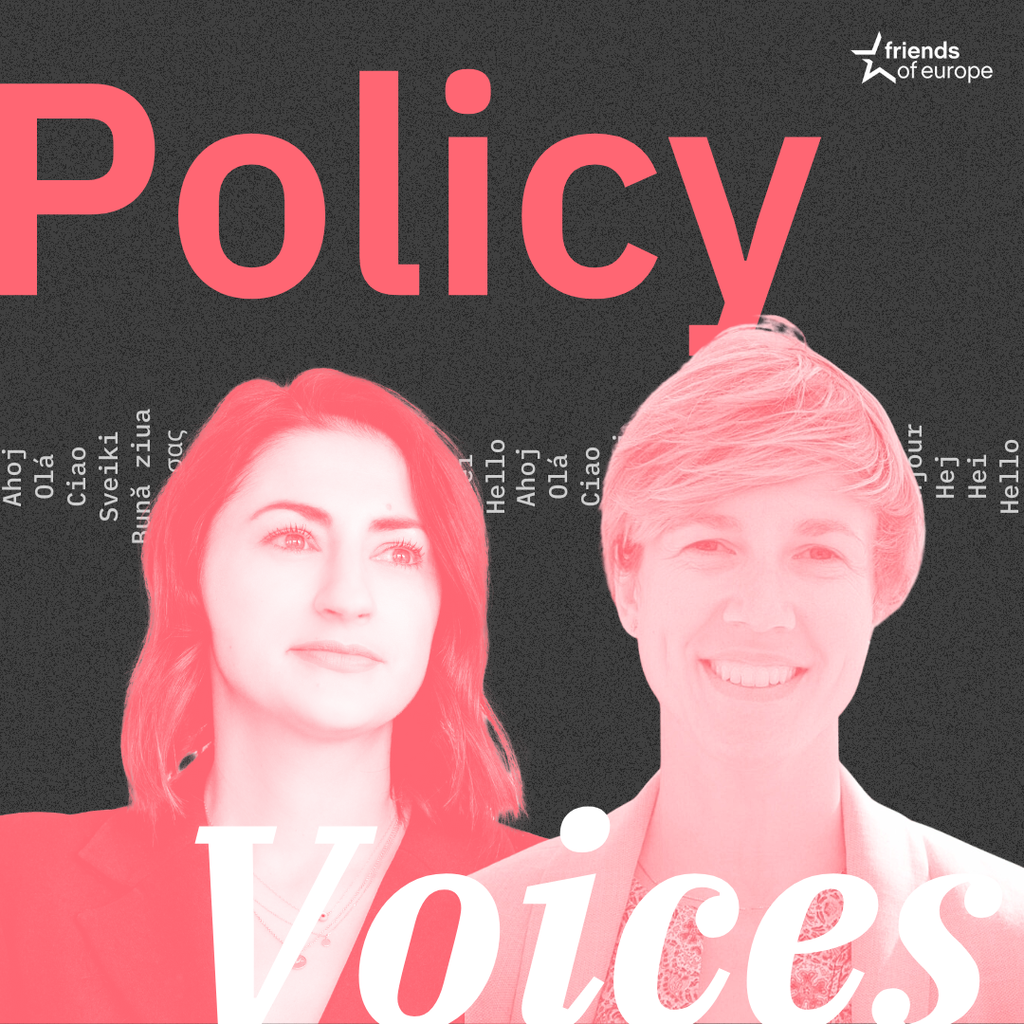A bold vision for a climate-neutral and competitive Europe
Next event In person & livestreamed

- Area of Expertise
- Climate, Energy & Natural Resources
Climate, Energy & Natural Resources

Senior Analyst at the Open Society European Policy Institute
When COVID-19 first swept across Europe in early 2020, workers in sectors labelled as ‘essential’ were hailed as heroes. Citizens applauded those tending to the sick from their balconies, while harrowing news stories highlighted the hardships endured by those picking, processing, transporting and selling our food.
At the European Union level, the increased awareness of agri-food labourers’ harsh working conditions, long hours, and health and safety risks led to a flurry of official statements. Member states, such as Germany, rolled out new laws on sub-contracting to curb abuses in the meatpacking industry, where COVID-19 outbreaks were linked to dangerous working conditions. In Italy, measures sought to more effectively implement existing national and EU legislation to tackle power imbalances in food supply chains.
In mid-2021, the new EU Common Agricultural Policy (CAP) was approved. Although the environmental and climate ambitions of the new CAP have been slammed by experts and NGOs, it does include a crucial new element – a conditionality mechanism cutting subsidies to farms for labour violations – marking the first time EU funds are directly tied to compliance with labour rights standards.
Almost two years on from the start of the pandemic, however, the conditions endured by workers in food supply chains no longer appear to be a priority. The welcome focus on sustainable agri-food production and consumption, as laid out in the EU’s flagship Farm to Fork Strategy, does acknowledge the need to respect workers and small producers’ rights alongside higher environmental and climate mitigation standards, but very few concrete initiatives are planned to achieve the former.
The EU must therefore take a long, hard look at its internal supply chains
Consumers tend to associate both egregious human rights violations and environmental harms caused by food production with supply chains located outside Europe, such as soy, palm oil or cacao. When news stories do circulate about workers in Europe toiling in the hot sunshine to pick fruit and vegetables for a handful of euros a day, they invariably feature farms in Spain, Italy or Greece.
Yet, as recent research – such as the 2020 OSEPI report, ‘Are agri-food workers only exploited in Southern Europe?’ – has demonstrated, violations of agricultural workers’ rights are widespread across Europe, including in northern states such as Germany, the Netherlands and Sweden. A new publication published by OSEPI in December 2021, ‘How clean are Europe’s food supply chains? The myths fuelling the massive expansion of Spain’s pork industry’, shows how the cost-cutting model of industrial meat production underpins the sector’s environmental and climate impact, as well as its sub-standard working conditions.
The EU must therefore take a long, hard look at its internal supply chains. If implemented, the ‘mirror clauses’ in trade deals, touted by the current French Presidency of the Council of the EU, may ensure that food imports to Europe are not laced with pesticides, which are banned on the continent. But if communities in rural Spain are unable to drink the water from local aquifers because it is contaminated by nitrate run-off from industrial pig farms, then enforcing higher standards on global markets will reek of hypocrisy.
There are a number of steps which the EU and its member states can take if they truly want Europe’s agri-food sector to be socially and economically, as well as environmentally, sustainable. The first is prompt and effective implementation of the new CAP’s social conditionality mechanism, so that funds are reduced or suspended when labour violations take place. For this to happen, labour inspectorates and oversight bodies also need to be beefed up at national level.
If the EU is serious about ensuring that its agri-food sector is truly clean, it must therefore embrace a broader concept of sustainability
Secondly, greater efforts need to be made to tackle power imbalances in supply chains so that large buyers do not squeeze producers to the extent that wages fall below the poverty line. To do so, the European Commission should monitor the implementation of the Unfair on Trading Practices Directive closely. Consumer-led initiatives in certain member states – some of which are analysed in OSEPI’s 2020 report, ‘Do we need an EU ethical food label?’ – have also shown that fair prices for consumers can be combined with living wages for workers, if food chains are fully transparent and there are less intermediaries.
Thirdly, there must be greater coherence between the EU’s environmental and climate targets, and its model of agri-food production. The European Green Deal is destined to fail if greenhouse gas emissions from agri-food – which make up about a third of the global total – continue to rise. Similarly, it will fail if agriculture destroys biodiversity instead of helping to restore it.
The added value of a truly sustainable agri-food sector is that it tends to also ensure better working conditions. In some cases, such as extensive livestock rearing or agroecological crop production, it is actually more labour-intensive and requires greater numbers of workers than its industrialised counterpart, which is heavily mechanised. The upcoming draft directive on sustainable corporate governance, which the Commission is due to present this month, should therefore ensure that businesses – including SMEs – implement both environmental and human rights due diligence within internal EU supply and value chains, as well as for imports to the EU.
If the EU is serious about ensuring that its agri-food sector is truly clean, it must therefore embrace a broader concept of sustainability – one which also includes a focus on the rights of workers to safe and dignified labour conditions, of small-scale producers not to be squeezed by the retail giants, and of consumers to enjoy high-quality, healthy food.
Next event In person & livestreamed

Past event In person & livestreamed

Past event In person & livestreamed

Past event In person & Livestreamed





Stay informed
We use cookies and similar technologies to adjust your preferences, analyze traffic and measure the effectiveness of our campaigns. Learn more about our privacy policy.